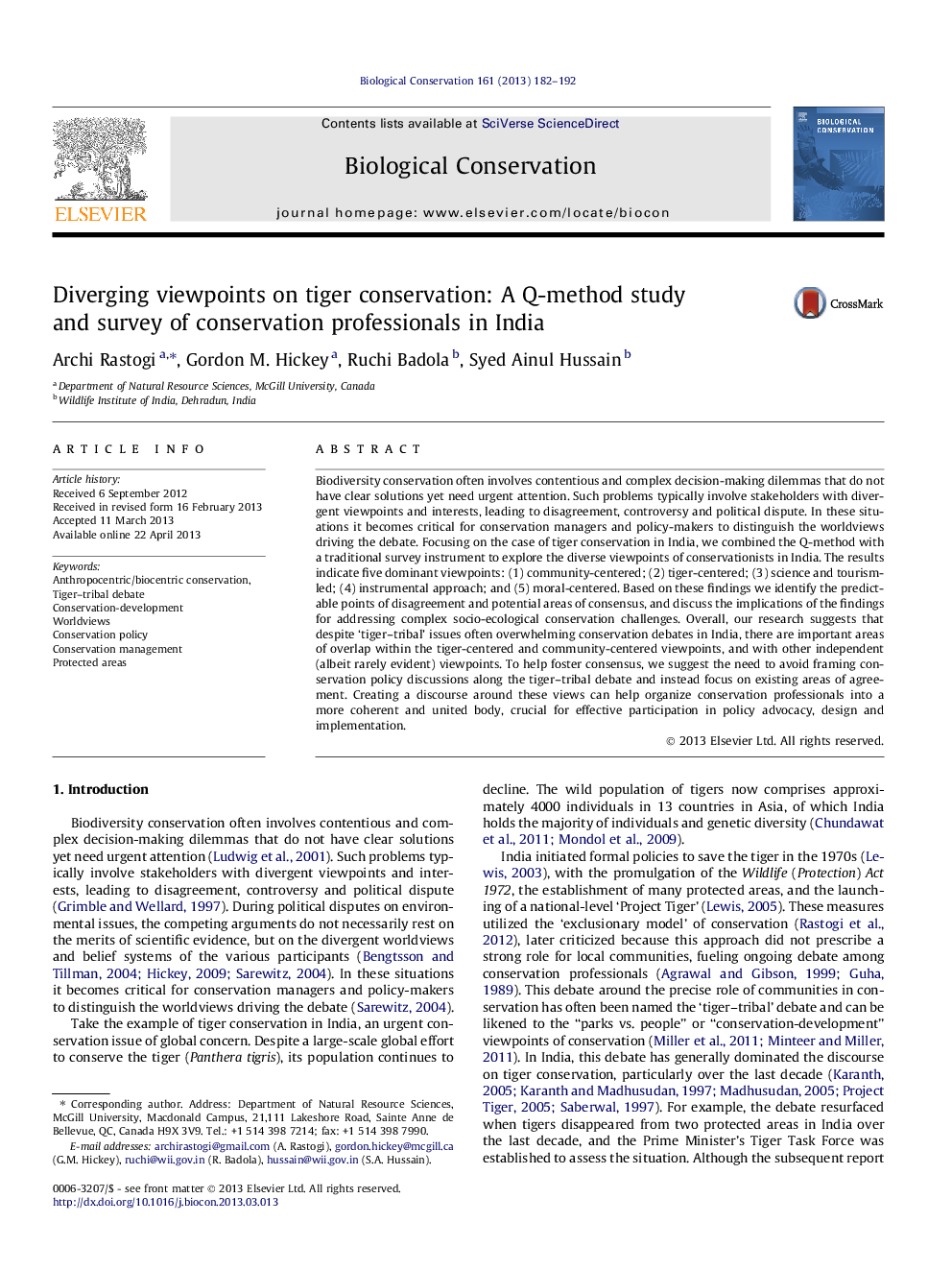| Article ID | Journal | Published Year | Pages | File Type |
|---|---|---|---|---|
| 6300732 | Biological Conservation | 2013 | 11 Pages |
â¢Surveyed tiger conservation viewpoints held by conservation professionals.â¢Five major viewpoints identified; moral/ethical viewpoints were most popular.â¢Tiger-tribal viewpoints identified as driving debate with negative policy outcomes.â¢We identify areas of agreement and possible consensus in conservation debates.
Biodiversity conservation often involves contentious and complex decision-making dilemmas that do not have clear solutions yet need urgent attention. Such problems typically involve stakeholders with divergent viewpoints and interests, leading to disagreement, controversy and political dispute. In these situations it becomes critical for conservation managers and policy-makers to distinguish the worldviews driving the debate. Focusing on the case of tiger conservation in India, we combined the Q-method with a traditional survey instrument to explore the diverse viewpoints of conservationists in India. The results indicate five dominant viewpoints: (1) community-centered; (2) tiger-centered; (3) science and tourism-led; (4) instrumental approach; and (5) moral-centered. Based on these findings we identify the predictable points of disagreement and potential areas of consensus, and discuss the implications of the findings for addressing complex socio-ecological conservation challenges. Overall, our research suggests that despite 'tiger-tribal' issues often overwhelming conservation debates in India, there are important areas of overlap within the tiger-centered and community-centered viewpoints, and with other independent (albeit rarely evident) viewpoints. To help foster consensus, we suggest the need to avoid framing conservation policy discussions along the tiger-tribal debate and instead focus on existing areas of agreement. Creating a discourse around these views can help organize conservation professionals into a more coherent and united body, crucial for effective participation in policy advocacy, design and implementation.
